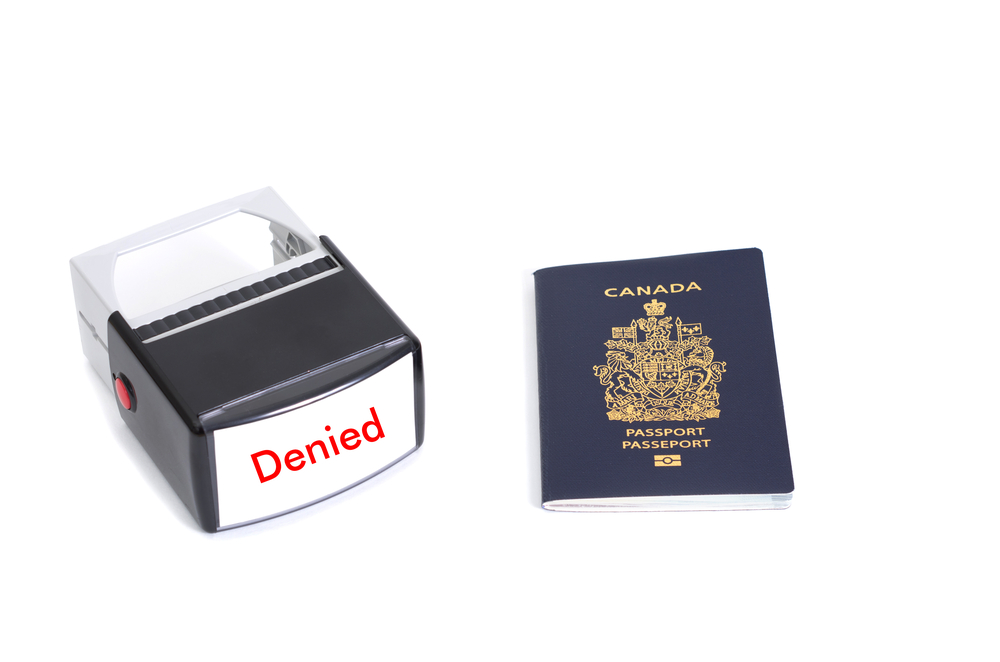What Not to Say During a UK Work Visa Interview (Top 6 Blunders)
Landing a job in the UK is a big deal, and the work visa interview is an important step in making that dream a reality. With a little preparation and awareness, you can avoid the common pitfalls that trip up many candidates.
In this article, we’ll look into the top 6 blunders you absolutely must avoid during your UK work visa interview. Trust me, steering clear of these mistakes will put you miles ahead of the competition. So, let’s get started!
Blunder #1: Failing to Demonstrate Sufficient Knowledge About the Company and Role
First up, let’s talk about homework. No, not the kind you dreaded in school, but the research you need to do before your interview. Failing to demonstrate sufficient knowledge about the company and the role you’re applying for is a major blunder that can quickly sink your chances of securing that work visa.
 Here’s the thing: employers want to know that you’re genuinely interested in working for their company and that you have a solid understanding of what the job entails. It’s not enough to just show up and wing it. You need to do your due diligence and come prepared.
Here’s the thing: employers want to know that you’re genuinely interested in working for their company and that you have a solid understanding of what the job entails. It’s not enough to just show up and wing it. You need to do your due diligence and come prepared.
So, how can you showcase your knowledge during the interview? Start by thoroughly researching the company’s history, mission, values, and recent news. Explore their website, read press releases, and check out their social media presence. Familiarize yourself with the specific role you’re applying for and how it fits into the larger organization. Be ready to discuss how your skills and experiences align with the job requirements and how you can contribute to the company’s goals.
Read: Skilled Worker Visa vs Intra-Company Transfer: Comparing UK Work Options
Blunder #2: Overemphasizing Your Desire to Live in the UK Rather Than Your Skills and Qualifications
Now, let’s talk about your motivation for wanting to work in the UK. While it’s perfectly natural to be excited about the prospect of living and working in a new country, it’s crucial not to let that enthusiasm overshadow your professional qualifications during the interview. Remember, the primary purpose of the work visa interview is to assess your suitability for the job and your potential contribution to the company. Employers want to know that you have the necessary skills, experience, and expertise to excel in the role. Overemphasizing your desire to live in the UK without adequately highlighting your professional merits can be detrimental to your chances of success.
So, how can you strike the right balance? While it’s okay to mention your personal motivations for wanting to work in the UK, make sure to keep the focus on your professional qualifications. Discuss your relevant skills, achievements, and experiences that make you an ideal candidate for the role. Provide concrete examples of how you’ve tackled challenges and delivered results in your previous positions.
Blunder #3: Being Unfamiliar with UK Work Culture and Norms
When you’re interviewing for a UK work visa, demonstrating an understanding of UK work culture and norms is absolutely essential. Failing to do so can be a major blunder that hinders your chances of securing that coveted visa.
You see, employers want to know that you’ll be able to integrate smoothly into their workplace and navigate the unique aspects of British professional life. They’re looking for candidates who can adapt to the local communication styles, respect hierarchical structures, and adhere to the unwritten rules of office etiquette.
So, what are some key aspects of UK work culture that you should be aware of? Let’s start with communication. In the UK, there’s a strong emphasis on politeness, diplomacy, and indirect language. Brits often use softening phrases like “perhaps,” “maybe,” or “I suggest” to express their opinions or give feedback. Being too blunt or confrontational can be seen as aggressive or rude.
Punctuality is another biggie. In the UK, arriving on time for meetings and appointments is considered a sign of respect and professionalism. Lateness is frowned upon and can reflect poorly on your work ethic.
Finally, let’s talk about hierarchical structures. While the UK work culture is generally less hierarchical than some other countries, there’s still a clear chain of command and a respect for authority. It’s important to address superiors by their proper titles (e.g., Mr., Mrs., or Dr.) and to follow the appropriate channels of communication.
During your interview, try to demonstrate your awareness of these cultural norms through your responses and behavior. Show that you’ve done your research and that you’re prepared to adapt to the UK work environment.
On the other hand, a lack of cultural awareness can be a major red flag for interviewers. It suggests that you may struggle to fit in with the team, communicate effectively, or adhere to company policies. Don’t let your unfamiliarity with UK work culture be the reason your visa application is denied.
Read: How to Book Cheap Flights to the UK
Blunder #4: Disparaging or Comparing the UK Unfavorably to Your Home Country
Now, let’s talk about attitude. When you’re interviewing for a UK work visa, it’s important to maintain a positive and respectful attitude towards the country and its culture. Disparaging or comparing the UK unfavorably to your home country is a major blunder that can quickly derail your chances of success.
You see, expressing negative opinions or making unflattering comparisons about the UK during your interview can be seen as disrespectful and ungrateful. It suggests that you may not be genuinely interested in embracing the local culture or contributing positively to the workplace.
Remember, the UK is offering you an exciting opportunity to live and work in their country. Showing appreciation and enthusiasm for this chance is essential. Instead of focusing on the differences or perceived drawbacks compared to your home country, highlight the aspects of UK life and work that excite you.
For example, you might mention your admiration for the UK’s rich history and cultural heritage, or express your eagerness to learn from the diverse perspectives of your British colleagues. Show that you’re open-minded, adaptable, and ready to embrace the unique experiences that come with working in the UK.
Blunder #5: Discussing Controversial Topics or Engaging in Political Debates
When it comes to your UK work visa interview, it’s best to steer clear of these landmines altogether. Engaging in discussions about contentious issues or expressing strong political opinions can be a major blunder that risks alienating your interviewer and damaging your chances of success.
You see, the UK work visa interview is not the place to showcase your political expertise or engage in heated debates. While it’s natural to have opinions on current events and social issues, expressing them in this context can be seen as inappropriate and unprofessional.
Remember, your interviewer is there to assess your suitability for the job and your potential fit within the company culture. They’re not interested in your stance on Brexit, the royal family, or any other polarizing topic.
So, what should you do if you find yourself navigating questions related to current events or social issues? The key is to respond diplomatically and steer the conversation back to your professional qualifications and experiences.
For example, if asked about a recent news event, you might acknowledge the complexity of the issue and express your desire to learn more about how it impacts the industry or company. Avoid taking a strong stance or making inflammatory comments. Instead, focus on how you can contribute positively to the workplace and support the company’s goals.
Read: 6 Things to Avoid During the UK Visa Application Process
Blunder #6: Failing to Ask Relevant and Thoughtful Questions
Finally, let’s discuss the importance of asking questions during your UK work visa interview. While it’s natural to focus on presenting yourself in the best light, failing to ask relevant and thoughtful questions can be a major blunder that undermines your chances of success.
You see, asking questions shows that you’re genuinely interested in the role, the company, and the opportunity to work in the UK. It demonstrates that you’ve done your research, thought critically about the position, and are eager to learn more.
On the flip side, a lack of questions can signal disinterest, unpreparedness, or a lack of engagement with the interview process. It can make you appear passive or indifferent, qualities that are unlikely to impress your interviewer.
So, what kind of questions should you ask? Focus on inquiries that showcase your knowledge of the company, your understanding of the role, and your enthusiasm for the opportunity.
For example, you might ask about the specific projects you’d be working on, the team dynamics and collaboration style, or the company’s plans for growth and development. You could also inquire about the work visa process and what support the company provides to international employees.










How I can get the visa
I need visa and work permit